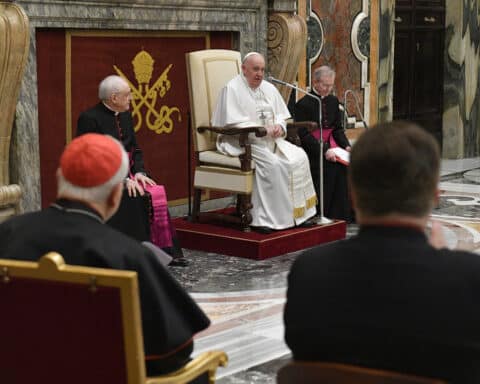Question: Given the dramatic rise in Alzheimer’s and the necessity of remembering our sins in order to properly confess them, what is your take on those people who haven’t been to confession in decades and now can’t remember that far back in order to make a valid confession? God’s mercy is endless, but so is his justice. Do you think their souls are in mortal danger?
— Janet Cooper, San Diego, California
Answer: It is the instinct of the Church to work with people at every stage of their journey and trust in God’s mercy. Even when people are comatose, the priest seeks to reach them, asking them to call to mind any sins and to call on the Lord. A priest may even lead such a person in a brief examination of conscience on the possibility that, though unable to communicate with us, they can still hear to some extent and, in the depth of their soul, God is still prompting them to repentance and faith. The priest then gives the absolution, and the person receives it to the degree that they can or are needful. Priests also anoint people in such conditions and, if they are near death, give the apostolic pardon. Thus, the Church, for her part, trusts in God’s mercy and unfailingly extends the offer of that mercy unto the very end, even to those who have clinically died, but the body still has some warmth.
If this be the case for the comatose, how much more so it must be for those who are still alert, though beset with various stages of Alzheimer’s disease. The priest will engage them to the extent that he can, give the absolution and extend anointing and other blessings as seems needed and fit.
The ultimate determination of a person’s ability to fruitfully receive the sacrament belongs to God. For example, whether a person had sinfully refused to get to confession long before slipping into dementia is not something we can fully know. Neither can we always know if a person, in their dementia, has experienced a change of heart and true repentance. Thus, we exhort them as far as possible and extend the sacraments, commending them to God who sees into the heart and knows a person’s final disposition.





